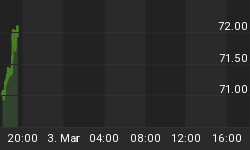Another day, another "unexpectedly" bad economic report. Lately it seems like a lot of what US government statisticians say comes as an unpleasant surprise for economists. The latter think a recovery is building momentum, while the former are painting a picture of incipient recession. The result of this systemic cognitive dissonance is that "disappointing" has become the new favorite buzzword of headline writers. See Bloomberg's
Surprise: U.S. Economic Data Have Been the World's Most Disappointing
The US economy keeps disappointing
Disappointing economic data probably won't phase the Fed
But the real surprise is that this is a surprise. The dollar has soared by a near-record amount in the past six months, making US goods about 25% more expensive on global markets, while US corporations have borrowed record amounts to buy back their stock, increasing their leverage without building appreciable new productive capacity. Families have spent the past couple of years loading up on the most debilitating kinds of debt, including student loans and subprime car loans. And interest rates on bank CDs and bond funds, which provide the bulk of retiree income, continue to fall, threatening to completely eliminate what used to be a predictable, steady source of spending on life's necessities.
This leaves relatively few Americans willing and/or able to buy new houses, cars and such. The predictable (i.e., not surprising) result is falling sales. From the past week:
Housing starts plunge in February
Homebuilder confidence falls to lowest since summer
US manufacturing output falls for 3rd month, worst since Lehman
The weather gets blamed for some of this, of course, despite the fact that many parts of the country have actually had nice, warm winters. But beyond that economists seem to be stumped. Not all economists; just the ones who work for institutions with a vested interest in keeping the leveraged speculating party going. Here's a snippet from John Williams of Shadowstats.com, who doesn't seem surprised at all:
Outlook for First-Quarter GDP Growth Continued to Dim. Economic reporting of the next month increasingly should move the consensus economic outlook towards a contracting first-quarter 2015 GDP. With the exception of increasingly distorted and poor-quality labor data (see Commentary No. 702), underlying economic detail of the last month or two has turned ever-more negative. That pattern of deteriorating economic reporting should intensify, going forward, with the global markets eventually recognizing that the U.S. economy has fallen into a "new" recession. Such a circumstance has horrendous implications for the domestic and global financial markets and systems (see No. 692 Special Commentary: 2015 - A World Out of Balance).
Imagine how disappointed they'll be then.
















